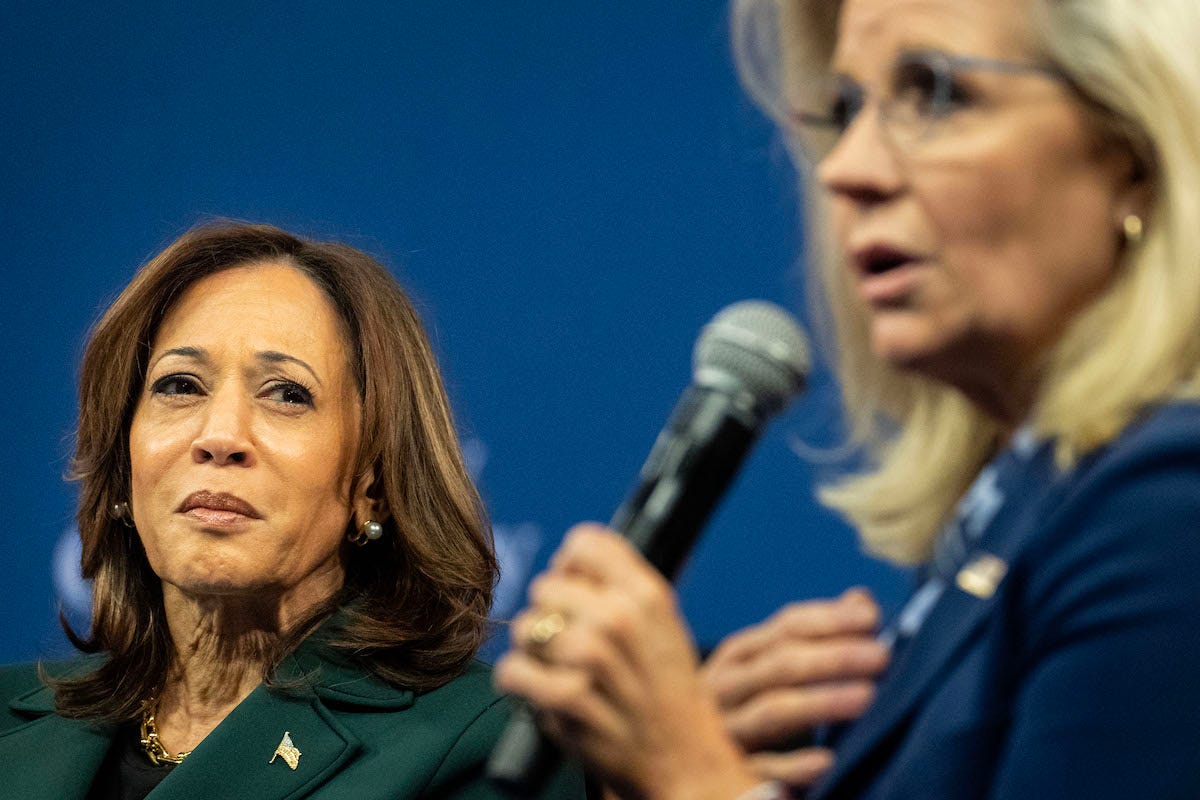Why Everyone In Politics Panders To Republicans
There's a difference between appeasement and a temporary alliance of necessity.
Before returns are in tomorrow, I’ll publish my final thoughts on the 2024 election, including the role of traditional media has played.
The short version is that, unlike in 2016, most voters this year will have been able to apprise themselves of the stakes of this election pretty easily. Eight years ago, casual news consumers could easily have been misled into believing that Donald Trump was the less-corrupt of the two candidates; that he was uncouth and unpolished but nevertheless issue-driven, and in any case very unlikely to win so—whatever, vote your conscience. A great deal of public understanding of that election stemmed from news networks running his remarks unfiltered and uncorrected.
Today, Trump lies as much as ever and right-wing media is the dominant form in our country. Responsible journalism is shrinking into a small niche within political media, and more and more of what people learn about politics, true or false, is determined by algorithm or the raw viral potential of content. Nevertheless, this year, I think most voters (even Trump supporters) are on notice both that he can win, and that his victory would plunge us into a dark unknown.
Some people just thrill to recklessness, and this election is a test of whether they’re numerous enough to elect a president. Their temptation will either prevail or it will be defeated.
But that doesn’t mean I think national political journalists collectively did a good job! I spent much of this final week before the election in public and private conversation with these agenda-setters, hoping to awaken them to the risk they’re taking with their own vocation by pandering to people who want to destroy it.
In a worst-case scenario, political journalists will once again help deliver the presidency to Trump, and this time he will institute a much farther-reaching crackdown on the press. But even if Kamala Harris wins, a large percentage of mainstream news consumers are questioning the value of political journalism as practiced by leading national outlets. If these consumers leave the market, the outlets will be in big trouble.
One common response to this observation (which multiple readers offered to me, and which I took to heart) is that Harris has done the same thing in a different context: refusing to tend to her natural allies while trying in vain to “rebuild trust” with conservatives—including by campaigning with Liz Cheney and emphasizing her unusual levels of support among Republicans and former Republicans. If frustrated news consumers might cancel subscriptions or change the channel because political reporters skew their coverage to appease Republicans, why wouldn’t frustrated progressives do the same to Harris?
Stipulating that Harris could lose the election narrowly, through the demobilization of a subset of progressives—and that her strategy would then look foolish in hindsight—I don’t think the comparison holds up very well. I obviously don’t think progressives should defect from the Democratic Party this cycle, but I don’t suspect they will either. Instead I suspect most will understand intuitively that Harris’s efforts to build a broad front against Trump are meant to defeat Trump, one-and-done, not to enter a long-running abusive symbiosis with the Republican Party.
There are profound and disturbing reasons so many influential leaders and institutions in public life make critical decisions with an eye toward appeasing Republicans, and they explain a lot of perverse behavior during the Trump years. But they are different from the reasons Harris has made such a big play for voters who would never have considered casting their ballots for her had Republicans not descended into madness.



